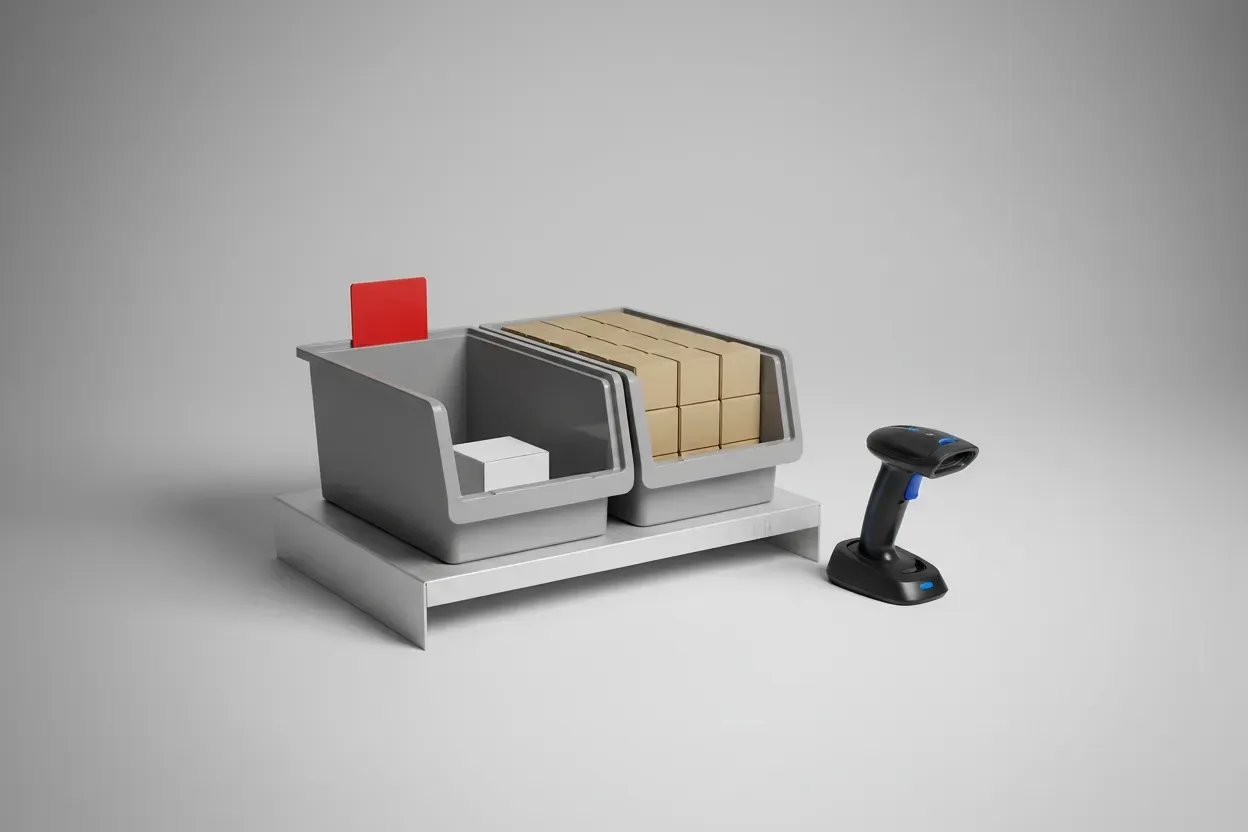10 Strategies to Implement to Safeguard Your Business During Time Financial Times
In the face of economic uncertainty, it’s crucial for businesses to have robust contingency plans. We’ve gathered insights from CEOs, founders, and other top executives on strategies that have fortified their companies during financial downturns. From implementing a ‘Lean and Mean’ approach to upholding financial reserves and diversifying services, discover ten valuable tactics that could safeguard your business in challenging times.
- Implement ‘Lean and Mean’ Strategy
- Establish Emergency Fund
- Secure Seed Funding for Stability
- Optimize Talent Market and Invest in Technology
- Diversify Client Base and Manage Budget
- Conduct Cost Management
- Create Dual-Budget Contingency Plan
- Diversify Funding Sources and Operational Flexibility
- Manage Inventory and Enhance Online Presence
- Uphold Financial Reserve and Diversify Services
Implement ‘Lean and Mean’ Strategy
During tough financial times, we’ve implemented a “Lean and Mean” strategy at Startup House. We focus on cutting unnecessary expenses and optimizing our operations to ensure maximum efficiency. We’ve also diversified our client base to reduce reliance on a single source of income.
Additionally, we’ve fostered a culture of innovation and creativity within our team, encouraging them to come up with innovative solutions to challenges. By staying agile and adaptable, we’re able to weather the storm and come out stronger on the other side. Remember, tough times don’t last, but tough companies do!
 Alex Stasiak
Alex Stasiak
CEO & Founder, Startup House
Establish Emergency Fund
When I started My Millennial Guide, I knew I needed contingency plans to weather unexpected financial storms. As a bootstrapped entrepreneur, income unpredictability is my reality. That’s why I’ve implemented safeguards like an emergency fund, variable expenses, and diversified revenue streams.
My emergency savings provides a six-month buffer, protecting me from downturns. By covering basic expenses for half a year, I buy time to correct course without accruing debt. I also ensured the majority of my costs are variable, not fixed. My hosting scales down based on traffic; I outsource labor as needed, and I rent office space hourly. This cost flexibility prevents overspending during lean months.
However, the most vital safeguard is diversified revenue. I don’t rely exclusively on sponsored posts or affiliates. Multiple income streams, including coaching, freelancing, and speaking, insulate me from disruption. If ad revenue drops, other channels persist. Having diverse monetization continues cash flow when singular sources waver.
While I hope to never endure gut-wrenching uncertainty, unpredictability is inevitable over time. Yet, through emergency savings, variable costs, and revenue diversity, I’ve designed My Millennial Guide to survive and adapt. No matter what storms arise, my business and I will be just fine. And isn’t that the dream for any bootstrapped entrepreneur? With the right contingency planning, it can absolutely be a reality.
 Brian Meiggs
Brian Meiggs
Founder, My Millennial Guide
Secure Seed Funding for Stability
We looked for seed funding. For me, knowing how to manage our money has been really important for our business. Last year, we got $3.75 million in seed funding, which was a big deal for us. It helped us improve our smart-workflow automation platform. But usually, using your own money (bootstrapping) is what works. You have to be smart about spending your business money on the right things. Not every small business needs outside money, but getting funding can really help you succeed.
This funding lets us hire great people in machine learning, which is key for making our platform better. It helped us speed up improving our product, so we could add new features and innovations more quickly. It also gave us financial stability to explore new markets without compromising the efficiency of our business operations. By using this money wisely, we’ve made our business more competitive and set ourselves up for success and growth in the long run.
 Lucas Ochoa
Lucas Ochoa
Founder & CEO, Automat
Optimize Talent Market and Invest in Technology
When the talent market constricts, we enact swift optimization to protect margins without compromising our signature services. Operationally, we rapidly right-size to core competencies by pausing auxiliary initiatives and redirecting resources to value-driving recruitment functions.
Strategically, we accelerate the nurturing of our niche network of expert senior developers and engineers. These candidates’ specialized skills remain resilient to economic fluctuations, securing steady placement revenue. We also refocus marketing on sponsored content partnerships versus paid ads to leverage organic reach and credentialing. Additionally, we fast-track technology investments in our two-way feedback platform, which enhances efficiency.
Our data and human capital assets power through downturns.
Ultimately, though, it’s our agility to pivot priorities and platforms with the headwinds that allows us to sail through while keeping candidates and companies satisfied.
 Lou Reverchuk
Lou Reverchuk
Co-Founder and CEO, EchoGlobal
Diversify Client Base and Manage Budget
During challenging financial periods, diversifying the client base proved crucial. Instead of relying on a few major clients, expanding to a broader range of smaller clients reduced the risk of major revenue loss. Strict budget management, focusing on essential expenses and delaying non-critical investments, helped maintain financial stability.
This approach, combined with regular financial health checks, ensured the business stayed agile and responsive to changing market conditions. These strategies not only cushioned against immediate financial pressures but also laid a foundation for sustainable growth in the long term.
 Mark Sheng
Mark Sheng
Project Engineer, DoDo Machine
Conduct Cost Management
I focused on cost management and diversification of revenue streams. We conducted a thorough review of operational expenses to identify areas for cost reduction without compromising essential services. We negotiated with suppliers for better terms and explored opportunities for bulk discounts.
We also had to implement some energy-saving measures and optimize resource allocation to minimize overhead costs. We conducted regular financial forecasting to anticipate potential challenges and proactively address them. We developed multiple financial scenarios to understand the impact of various economic conditions on the business.
We established a clear policy for checking and utilizing emergency funds, which ensures transparency and accountability. Additionally, we implemented a flexible staffing model, such as cross-training employees for multiple roles.
 Sanjay Singh
Sanjay Singh
Founder and CEO, Technource Inc.
Create Dual-Budget Contingency Plan
To safeguard our business during tough financial times, I’ve implemented a dual-budget strategy. We maintain our standard operating budget alongside a contingency budget, which outlines potential expense reductions that can be made without jeopardizing the core functions of the business. This approach ensures we’re prepared to quickly adapt to revenue fluctuations, preserving our operational integrity and financial health.
 Justin Silverman
Justin Silverman
Founder & CEO, Merchynt
Diversify Funding Sources and Operational Flexibility
An essential contingency plan that has safeguarded our business during tough financial times involves diversifying our funding sources and implementing a flexible operational model.
Early on, we recognized the importance of not relying solely on traditional venture capital but exploring government grants and partnerships with energy companies. This approach provided us with a financial cushion during downturns and aligned with our global mission to promote sustainable energy solutions. By securing a mix of funding sources, we ensured that our work on the XDrill™ technology could continue even when the venture capital market tightened.
Additionally, we adopted a lean operational model that allowed us to scale our resources up or down based on the current financial climate. This flexibility meant that we could maintain our core team and operations while maintaining the quality of our work and our commitment to sustainability. It also meant we were prepared to seize opportunities, such as accelerating development projects when additional funding became available or market demand increased.
This strategic approach to diversification and operational flexibility has helped us weather financial challenges and positioned DeepPower as a resilient and adaptive leader in the renewable energy industry. It underscores the importance of foresight and flexibility in ensuring the sustainability of a business, especially in sectors as dynamic and critical as clean energy.
 Andrew Van Noy
Andrew Van Noy
Founder & CEO, DeepPower, Inc.
Manage Inventory and Enhance Online Presence
In challenging financial times, dasFlow focuses on three key strategies: diversifying our client base, optimizing our inventory management, and enhancing our online presence. Diversification ensures we’re not overly dependent on any single market segment.
By catering to a broad range of clients, from small local businesses to larger corporations, we maintain a steady flow of orders. Inventory management is crucial; we adopt a just-in-time approach, reducing overheads and avoiding excess stock.
Lastly, enhancing our digital footprint is vital. We invest in online marketing and strengthen our e-commerce capabilities, making it easier for clients to design and order custom apparel directly from our website. This multi-pronged approach helps us stay resilient and adapt to market changes effectively.
 Nicolas Krauss
Nicolas Krauss
Founder and CEO, dasFlow Custom Sublimation Apparel
Uphold Financial Reserve and Diversify Services
In times of fiscal adversity, as the proprietor of an Australian criminal law firm, I have diligently executed an all-encompassing contingency strategy to protect our enterprise. To begin with, a substantial financial reserve is upheld in order to provide coverage for critical expenditures and guarantee the ongoing functioning of the organization.
In addition, our legal services and clientele have been diversified to reduce our reliance on particular industries or case categories. Effective cost management is of the utmost importance and includes renegotiating contracts and investigating technological solutions that are economical.
Furthermore, by cultivating robust client relationships and placing significant emphasis on the worth of our legal expertise, we are able to enhance client retention and acquisition. We endeavor to sustain the delivery of exceptional legal services amidst challenging circumstances by maintaining flexibility, financial fortitude, and market responsiveness.
 Ahmad Faraj
Ahmad Faraj
Owner, Principal & Senior Criminal Lawyer, Faraj Defence Lawyers
Submit Your Answer
Would you like to submit an alternate answer to the question, “Share a contingency plan or strategy you’ve implemented to safeguard your business during tough financial times.”






































